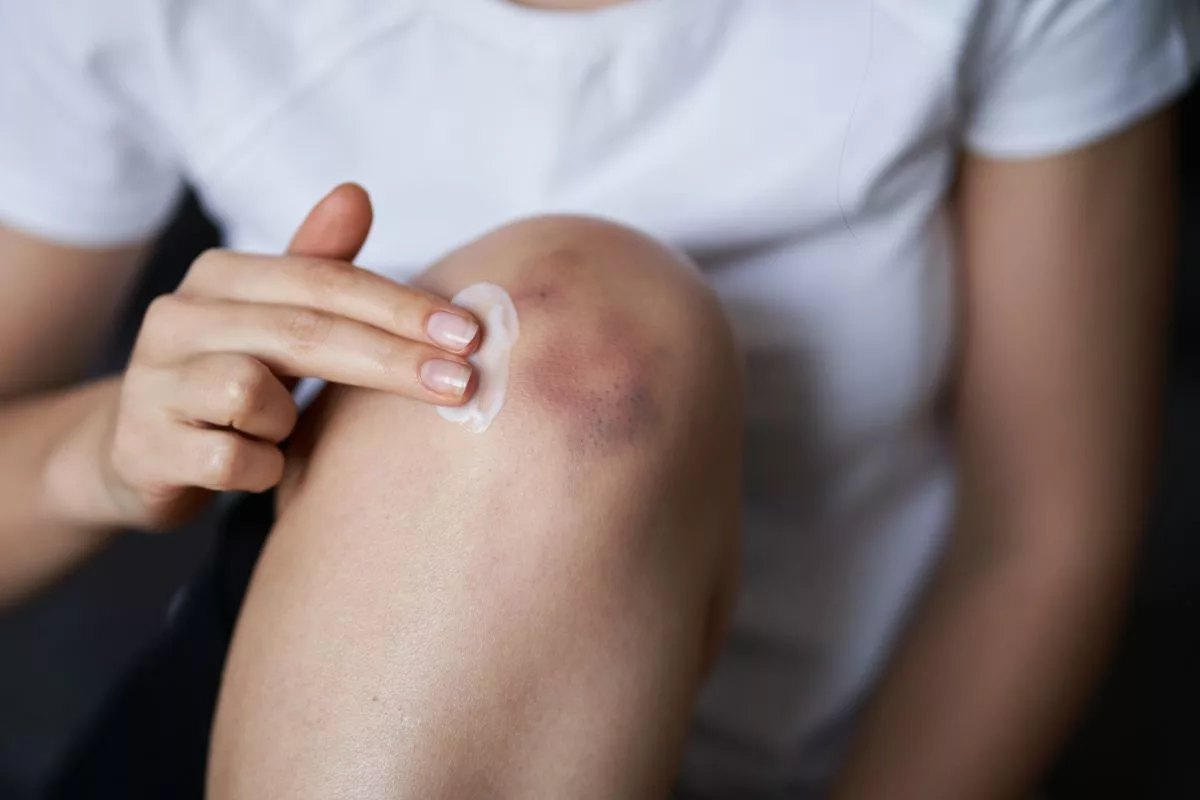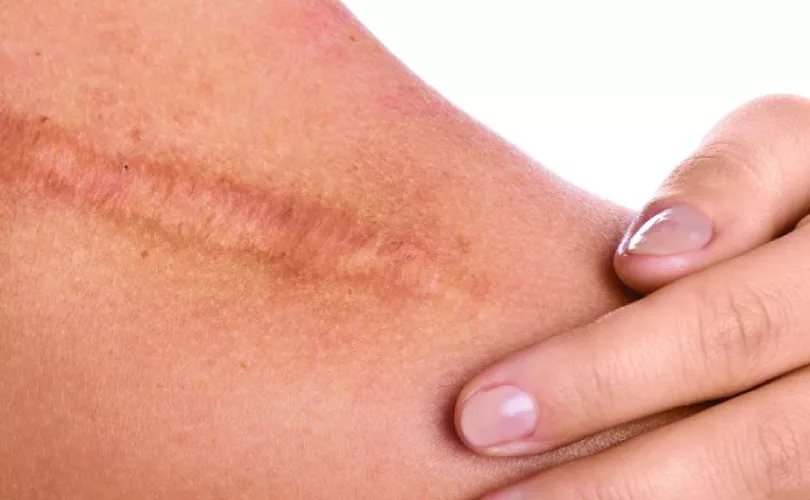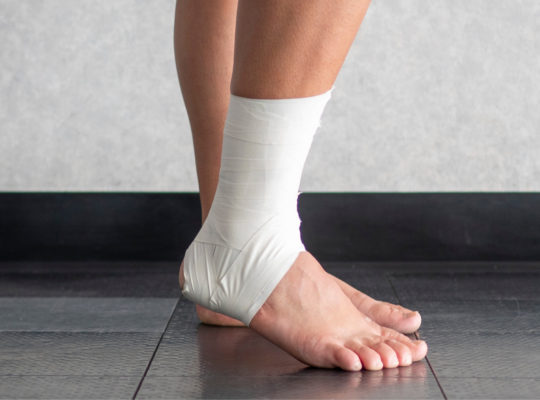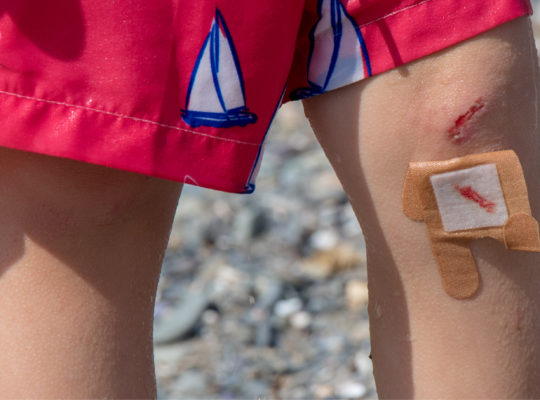Healing a wound can be a frustrating experience, especially when it takes longer than expected. Whether it’s a minor cut, scrape, or something more serious, slow healing can disrupt daily routines and leave you feeling uncomfortable. Many factors can delay the recovery process, such as improper care, infections, or simply not knowing the best practices.
Did you know that a clean, moist environment can speed up healing by nearly 50% compared to letting wounds dry out? This simple approach, combined with the right techniques, can make a significant difference.
If you’re looking to reduce healing time and get back to your usual activities sooner, you’re in the right place. This guide will walk you through practical steps to promote faster recovery, prevent complications, and ease discomfort.
The Best Ways To Increase Healing Speed
When we get injured, there are many things we can do as individuals to improve our general health, and ensure that our first aid cream for wounds heal as fast as they possibly can – ensuring we are back to our normal selves in no time.
All of these are available over the counter, or on the supermarket shelves, and when used in conjunction with proper dressings and lifestyle choices, can ensure that any wound is healed quickly and efficiently.
Honey
Honey has long been used in historic medicine – and is widely famed for its healing properties.
The reason why honey is so effective stems from the antioxidant, antibacterial, and anti-inflammatory properties that honey has – all of which can be useful for keeping all manner of wounds clean and healthy.
This has been shown to be especially effective on smaller and medium sized wounds, but less so on more invasive wounds like those gained post-surgery – meaning that anyone thinking of using honey should consult with their doctor beforehand.
Garlic
Another ingredient that has long been used for medicine is garlic, and there are many uses for it within both traditional medicine, and the maintenance of our general health.
With regards to the healing of wounds, garlic contains the compound allicin, which has antimicrobial and anti-inflammatory properties.
In experiments on wound healing in rats, it was also shown that a solution containing 30% garlic promoted an increase in ‘proliferating fibroblasts’ – compounds that are present in the formation of new tissue, and during the repairing process.
Coconut Oil
Coconut oil has also long been used in medicine – specifically with regards to skincare, where it can be used for treatment of the scalp, dry skin, as well as things like repairing recently tattooed skin.
With regards to healing wounds, coconut oil also contains monolaurin – a fatty acid that has distinct antimicrobial properties – meaning that it can be used to treat wounds, while keeping them clean and bacteria free.
Turmeric Paste
Commonly used as a spice, turmeric contains curcumin – a compound that has antifungal, antibacterial, and anti-inflammatory properties, making it great for promoting healing in wounds.
A 2016 review also showed that turmeric quickened the healing process by triggering growth hormones that were present during tissue regeneration, giving it promising potential in the world of medicine.
Aloe Vera
Belonging to the cactus family, aloe vera is a plant that has many uses within a number of different industries.
However, when it comes to healing wounds faster, its benefits are derived from the high vitamin and mineral content, as well as from glucomannan – a compound that encourages the body to produce collagen.
It is also widely used in skincare products to aid skin regeneration, reduce inflammation, and reinforce skin elasticity, integrity, and moisture retention.
There has also been some evidence to suggest that aloe vera can have beneficial effects on burned skin, although this is still in the process of being tested.
Antibacterial Ointment

Last but by no means least, we have antibacterial ointment – something that comes in many shapes, sizes and brand names, but which is one of the best over the counter methods of making wounds heal faster.
As the name suggests, the ointment is antibacterial, and it can have great effects on keeping wounds sterile, free from bacteria, and primed ready for healing to begin.
What Else Can We Do To Improve Healing?
As well as the above home remedies to improve healing speed, there are also several lifestyle changes we can make to ensure we are operating at peak health and functionality – facts that can also improve our recovery time and get us back up and running quicker.
Maintain Good Hygiene
One of the best ways to ensure your wounds heal quicker is by keeping them clean and free from bacteria.
This can obviously be easier said than done – especially if the wound in question is on your hands (or in an area prone to germs) – but it is still one of the best lines of defense against infection, and as such is vital to wider health and wound healing.
This means bathing the area regularly, ensuring that living spaces are clean and free from bacteria, and that you are using antibacterial ointments to ensure that your wounds are as clean as possible.
Keep Diets Nutritional
It is also important to ensure that your nutritional needs are being met.
This means cutting out harmful processed foods, as well as pollutants like alcohol and tobacco, and filling your refrigerator with healthy, nutritional foods that will provide your body with all the energy and nutrients that it needs to function.
This will not only make you feel better – and improve your long term health – but it will also help to improve wound healing too.
Ensure Proper Sleep
Not only do our bodies need cleanliness and nutrition, but they also require plenty of sleep. What’s more, this is something that many of us neglect on a nightly basis – not to mention being something that many of us struggle to maintain in our modern world of blue-lit screens and blinking devices.
Adults should generally be getting 7 or 8 hours of sleep per night, and this can be improved by taking regular exercise, getting plenty of fresh air, being mentally stimulated throughout the day, and by eating a nutritionally balanced diet.
Once all of these things are on track, any wound won’t stand a chance against your bolstered immune system.
Apply Proper Dressings
If the wound is bad enough that it requires dressing, then one of the best things you can do is to make sure that it is done right.
This means cleaning the wound as much as possible before you apply bandages or band-aids, applying the right kind of dressing to the wound, and ensuring that you change the dressings regularly to keep the wounds clean – not to mention allowing it to breathe once the initial healing process has started.
It is also important to keep your wound dry and covered – especially when at work or handling food, garbage, or other contaminants. Doing so will ensure the wound and the dressing remain dry, clean, and free from bacteria – all things that expedite the healing process.
Avoid Picking The Wound
Once the wound has scabbed, and the healing process is well under well, it is important to refrain from picking, scratching, or otherwise disturbing the wound as much as possible – no matter how tempting it might be.
This can seriously prolong the healing time of the wound, and can turn a simple healing process into a more drawn-out, long endeavor.
What’s more, depending on the nature of the wound, excessive picking at the scab could run the risk of infection – something that can cause a whole world of problems further down the road.
When To Seek Further Medical Help?

Of course, some wounds are far too serious to deal with all by yourself, and it is important to know when to seek medical assistance from a doctor or hospital. Generally speaking, a person should seek medical attention for wounds that are:
- Large, deep, or jagged wounds
- Wounds that won’t heal or stay closed
- Wounds that contains debris and foreign objects
- Wounds that contains dirt, rust, or other contaminants
- Heavily bleeding wounds
- Wounds that spurt blood
- Wounds caused by bites (either animal or human)
Any of these kinds of wounds should be seen by a medical professional, and failure to do so can result in infection, blood loss, or even more severe outcomes in some cases. As such, it is really worth contacting your healthcare provider if you have any concerns about a new wound.
Final Thoughts
And there we have it, everything you need to know about the healing process, and the best way to make wounds heal at their fastest. It’s true that accidents happen all the time, and we can all end up injured at one point or another in our lives.
Luckily though, there have never been as many resources available to us – each giving us the information and tools we need to heal our wounds faster and safer than ever.
So if you are interested in healing wounds faster, then check out some of these handy methods. Something tells me you won’t be disappointed!
FAQs
Should I Let My Wound Air Out or Keep It Covered?
Keeping a wound moist and covered promotes faster healing by preventing the wound from drying out. When a wound is exposed to air, it can slow down the healing process and increase the chances of scarring. Covering a wound supports a better healing environment.
How Often Should I Change the Bandage on My Wound?
Change the bandage at least once daily or whenever it becomes wet or dirty. Keeping the wound clean and covered reduces infection risks and enhances healing. Regular bandage changes also ensure a healthier environment for tissue repair and overall wound recovery.
What Foods or Nutrients Can Help with Wound Healing?
Eating a balanced diet rich in vitamins and minerals is essential for wound healing. Nutrients like vitamin C, zinc, and protein support tissue repair and regeneration. Staying hydrated also aids cellular repair, helping your body recover from wounds more effectively.
Can Smoking Affect How Fast a Wound Heals?
Yes, smoking can delay wound healing by reducing blood flow and oxygen to the wound area. Nicotine and other chemicals in cigarettes interfere with the body’s natural healing processes. Quitting smoking can significantly enhance the body’s ability to heal wounds faster.






